The Department was established in the year 1986 offering Physics in combination with Mathematics and Chemistry. With the advent of IT, the new combination of Mathematics, Physics and Computer Science for B.Sc was introduced in the year 1998.
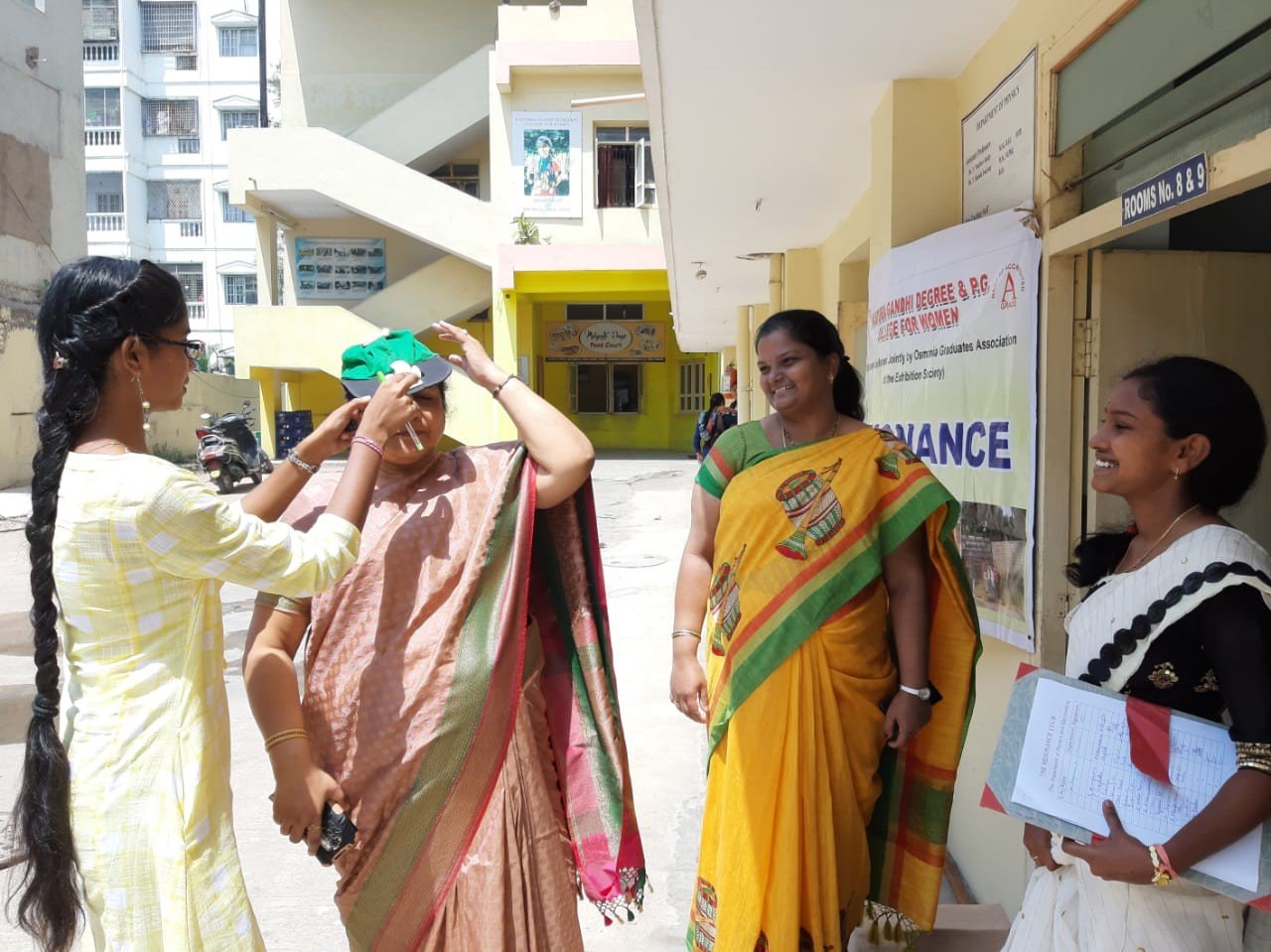
The Physics Laboratory is fully functional and furnished with Lab equipments needed to cover the Practical’s of Physics. The Department Library stocks about 350 books for the benefit of Students and Faculty. The Department regularly arranges for Field trips, Guest lectures and Exhibitions for the benefit of the students. Students are motivated and encouraged to participate in inter and intra college activities to develop their subject and inter personal skills. The faculty regularly attends and organizes workshops, faculty development programs, conferences and field-trips to enhance their Subject skills.
To establish platform for the creation of knowledge through teaching and research in Physics at various levels. To help create a scientific society this encourages logical thinking.
To awaken the young minds and discover their talents both in theory and in practical Physics, through dedication to teach, commitment towards students and innovative instructional methods like PPT & Visual Aids.
To support the developmental activities of the college and make the Department vibrant.
To organize and sustain efficient operating systems in the Department for realization of our objectives.
To develop strategy in the Department for continuous improvement.
Well equipped laboratory.
Bridge course and remedial classes for slow learners.
To adopt Student centric teaching methods.
Continuous evaluation and feedback of students.
Active participation in major activities in the College.
Research publications.
Maintaining department Library for both faculty and students.
| NAME | QUALIFICATION | DESIGNATION | EXPERIENCE |
|---|---|---|---|
| Ms. N.Madhavi Reddy | M.Sc., B.Ed | H.O.D, Assistant Professor, Academic Coordinator | 20 Years |
| Ms. M.Kalaiveni | M.Sc., B.Ed | Assistant Professor | 06 Years |

Ms Sinde Shwetha Osmania University CPGET Rank -10 2022
Ms M Supraja Osmania University CPGET Rank -10 2022
Ms Kavali Akhila Internship in Pantech E- Learning Pvt Limited 29th March 2021 to 29th June 2021
Ms Soni Bitra Internship in Pantech E- Learning Pvt Limited 29th March 2021 to 29th June 2021
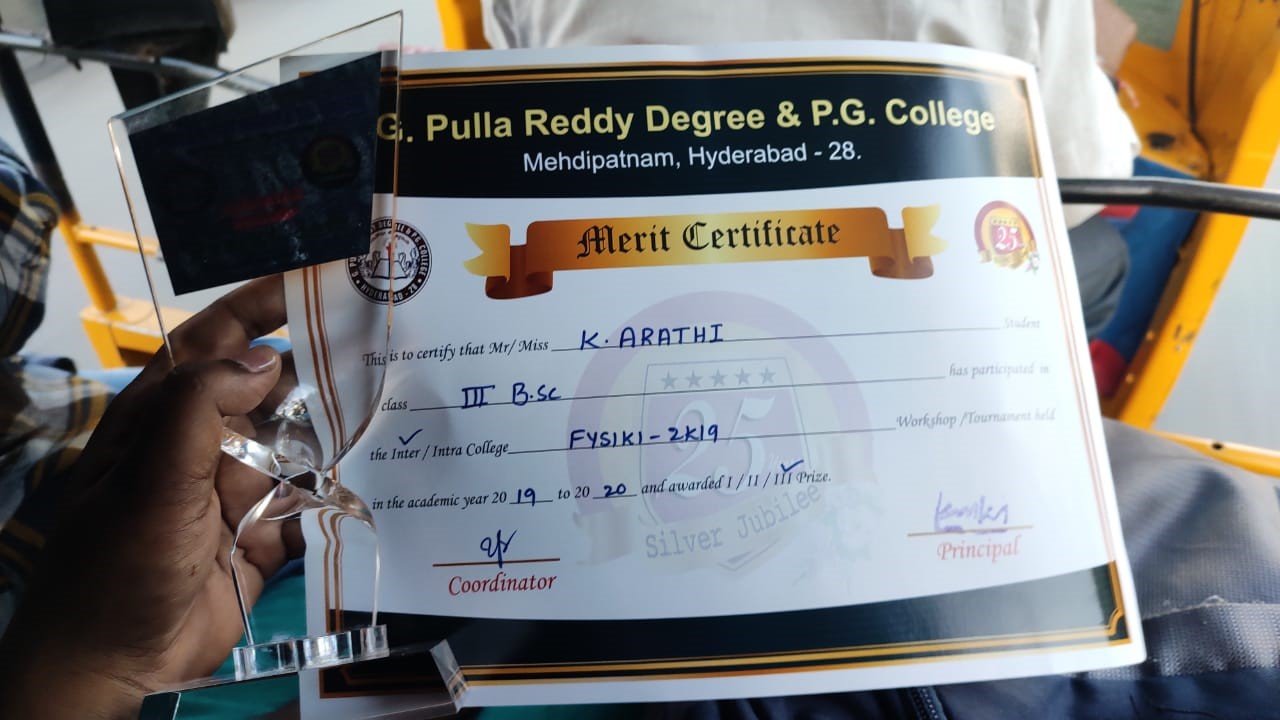
K Arathi Science Exhibition –Theme Sustainable Energy 27th September 2019
The Department organized a Webinar on “Relevance of Information Technology as a Career Option in Current Scenario” on 30-05-2020.
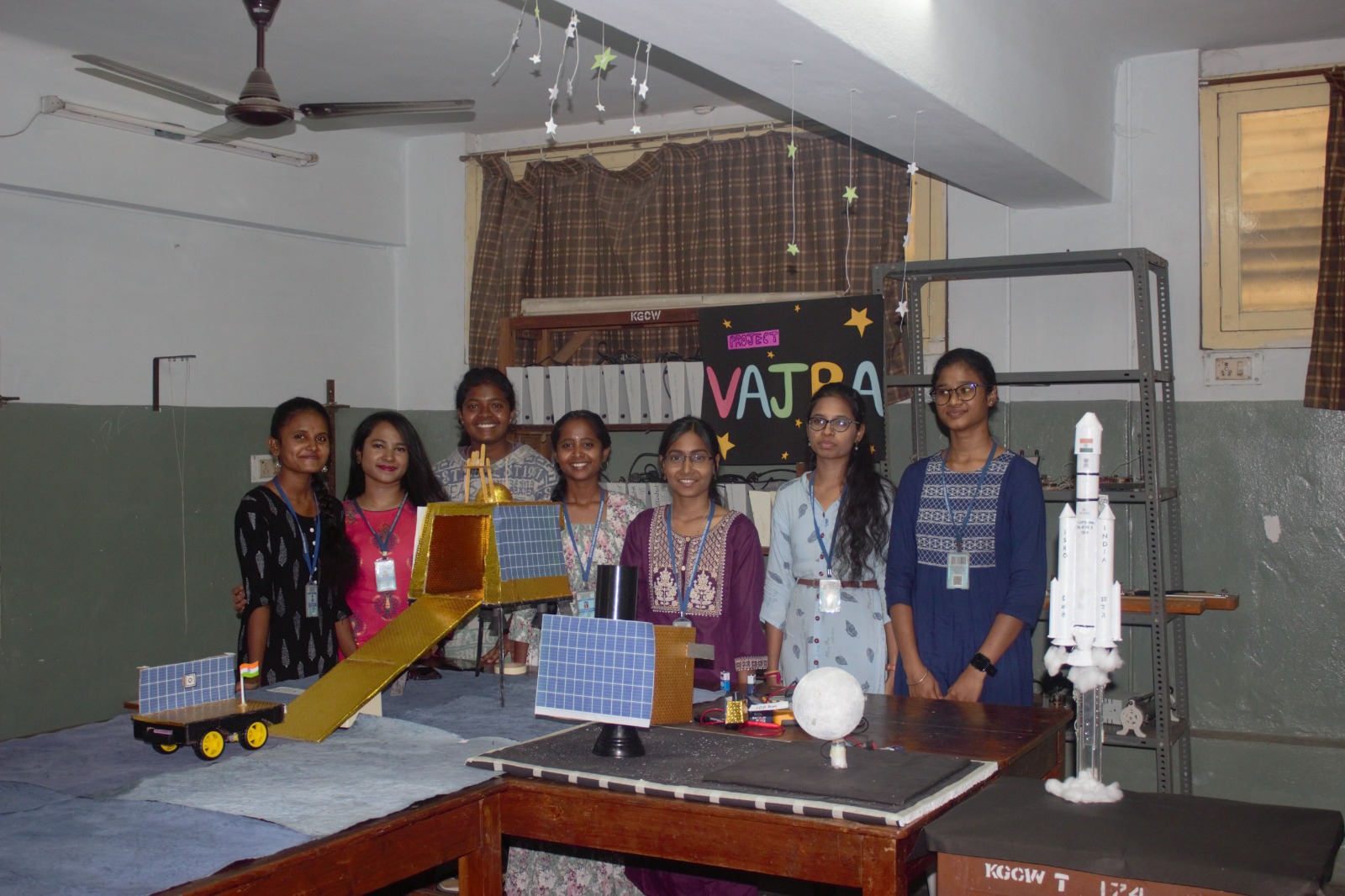
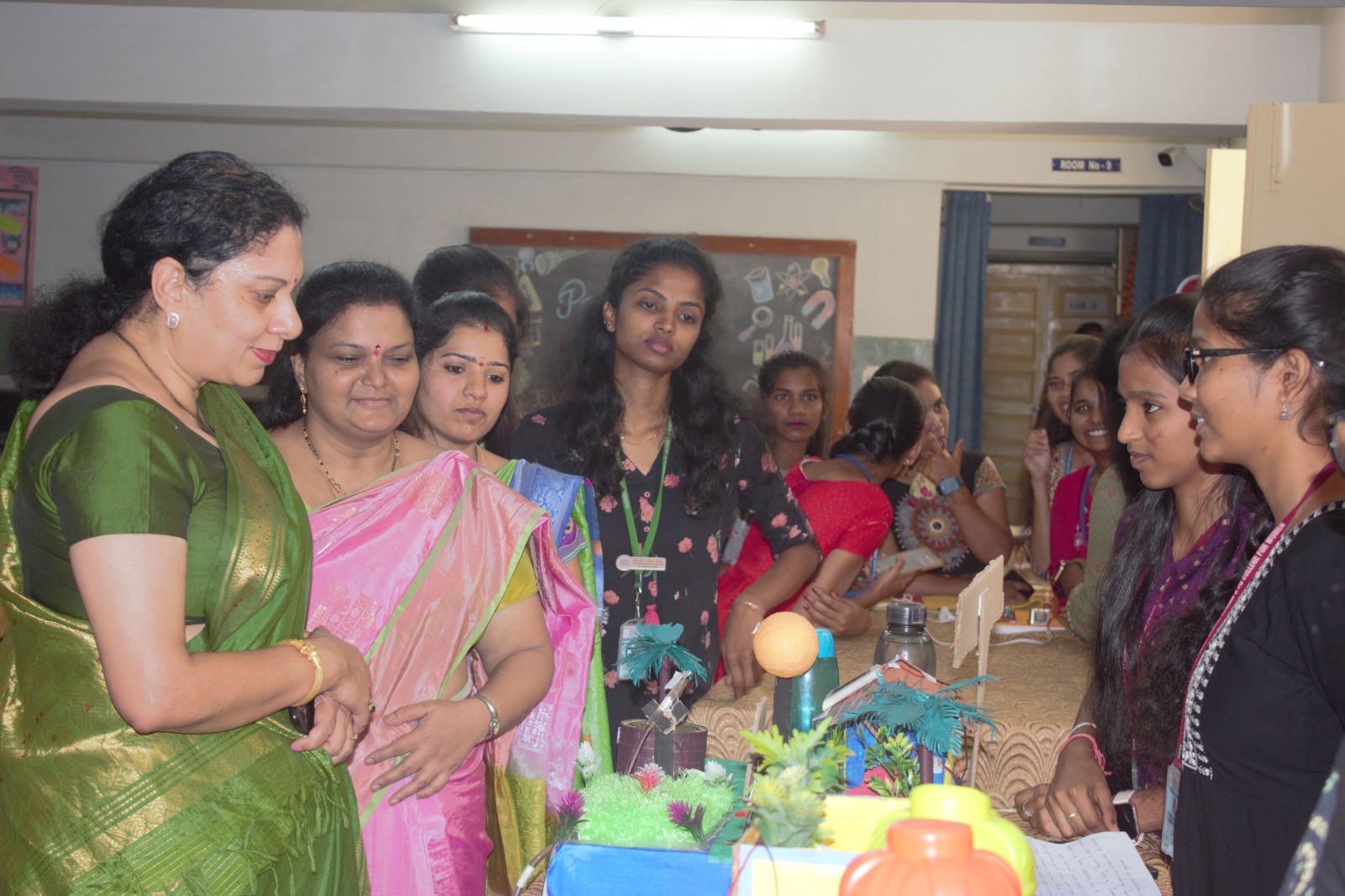
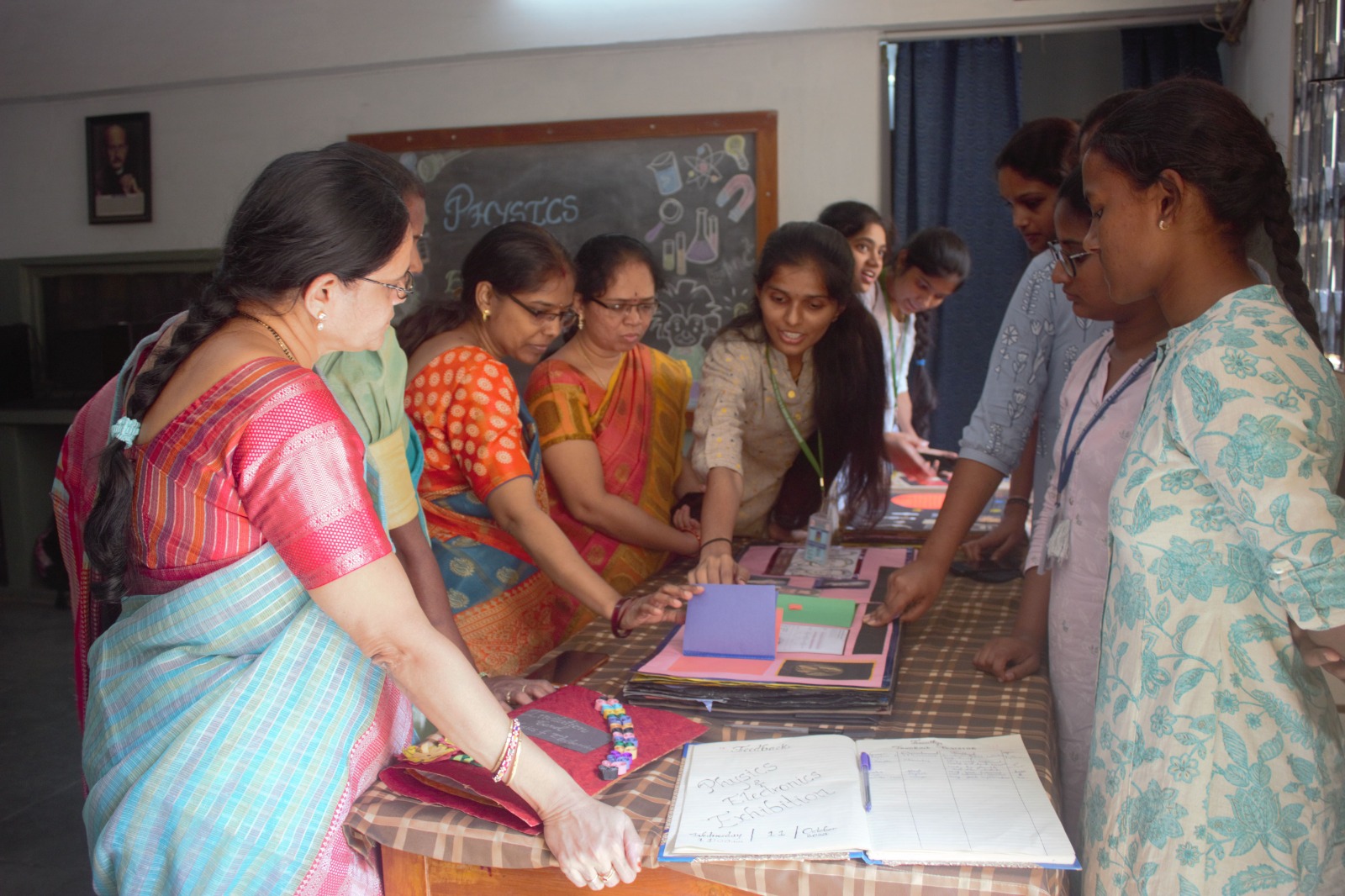

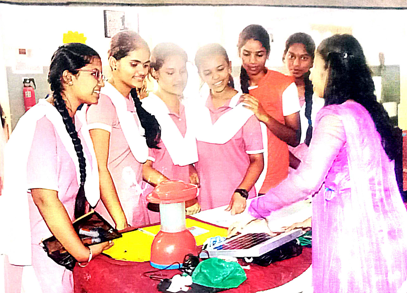

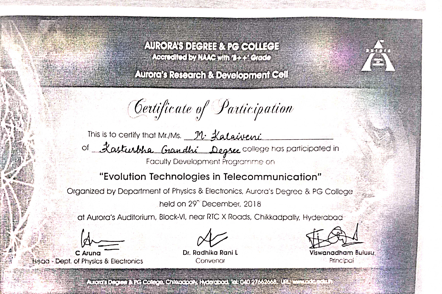
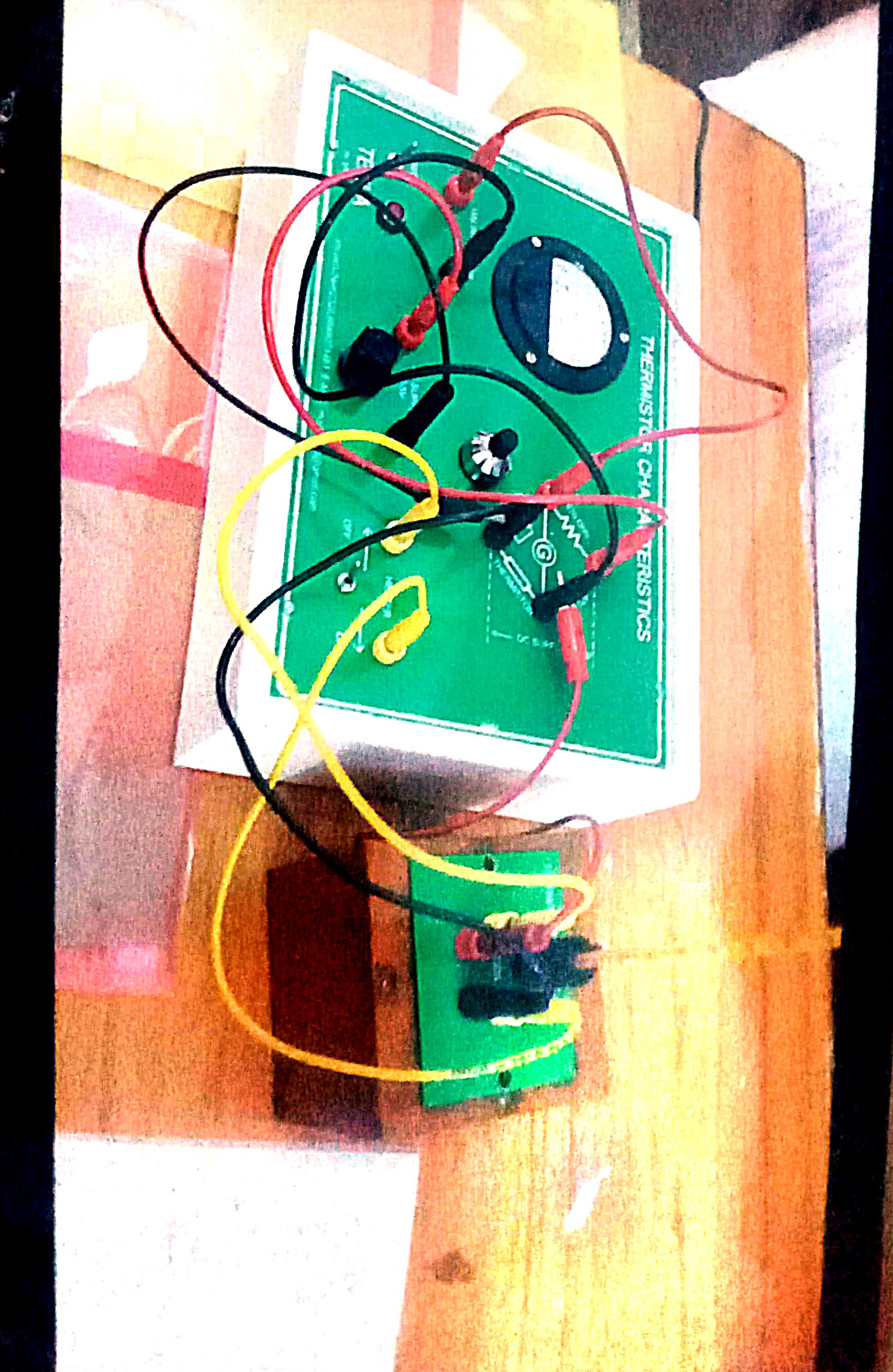


Title:
Path of Science during Independence Struggle – To understand the struggle of
science during independence
Date: 29th Aug 2022
The Department Organized a Guest Lecture on the topic “Laser Technology and it’s Applications” by Mr. Chakravarthy from CCMB on 19-08-2017.

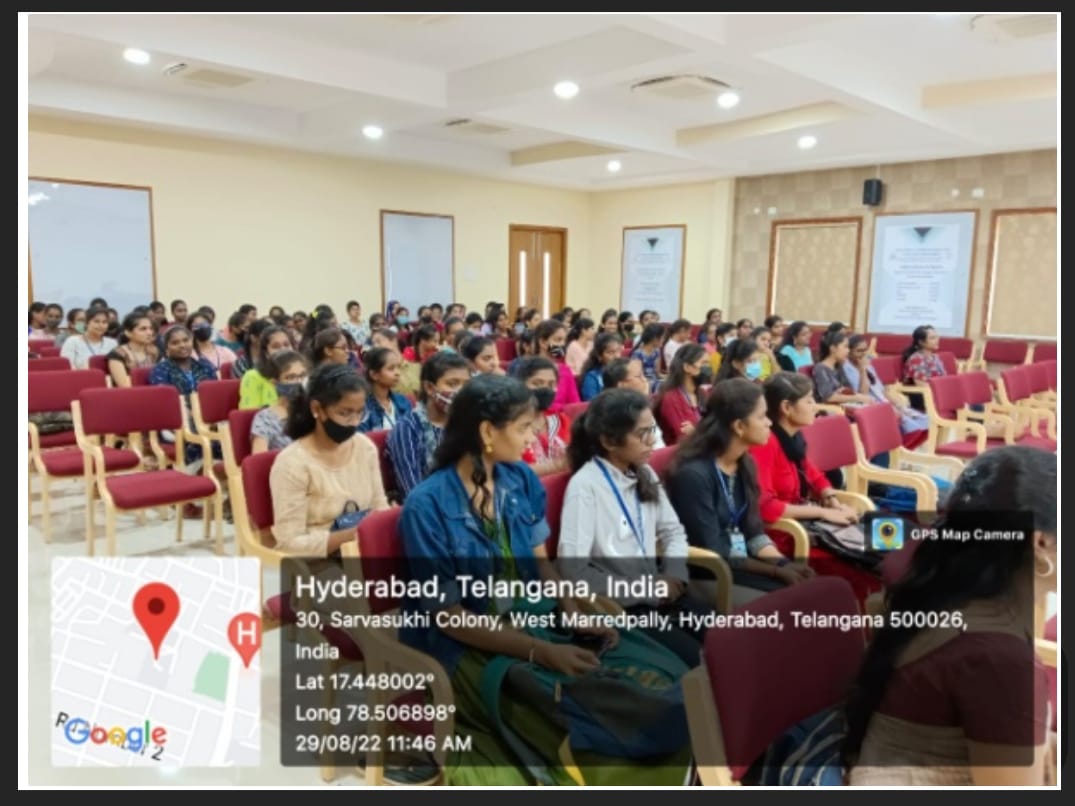
Workshop on "Basic Components and Circuit Design" is scheduled on 9th January 2025, from 10:30 AM to 2:30 PM, at Kasturba Gandhi Degree and PG College

Department of Physics and Electronics conducted Workshop on Embedded System, Robotics and IOT Projects in collaboration with NSIC – A Government of India Enterprise. 6th March 2023

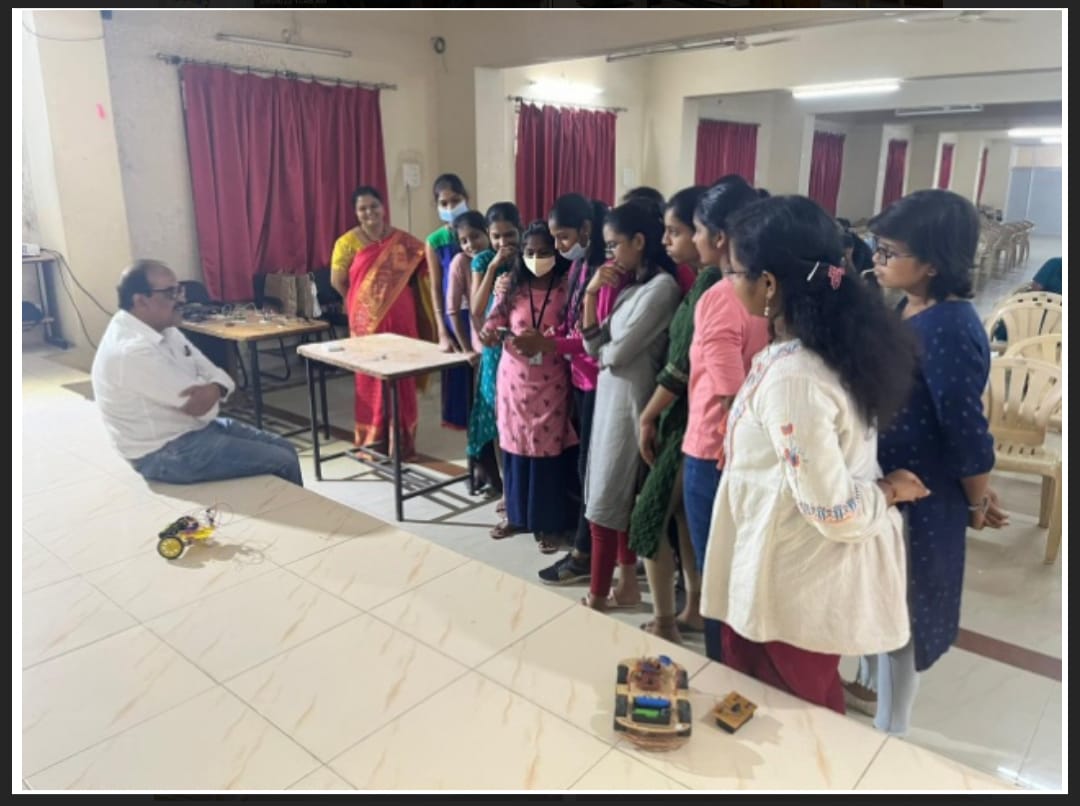
| DATE | FACULTY | TITLE | VENUE |
|---|---|---|---|
| 3RD 4TH July | M KALAIVENI | Virtual Labs In Physics | Aurora College |
| DATE | FACULTY | TITLE | VENUE |
|---|---|---|---|
| 14 MAY 2020 | N MADHAVI REDDY | E-WORKSHOP ON “VIRTUAL LABS’’ | BHAVAN’S VIVEKANANDA COLLEGE |
Reel making Competition-Physics in Space on 3rd September 2024.

Human Values 30/8/22

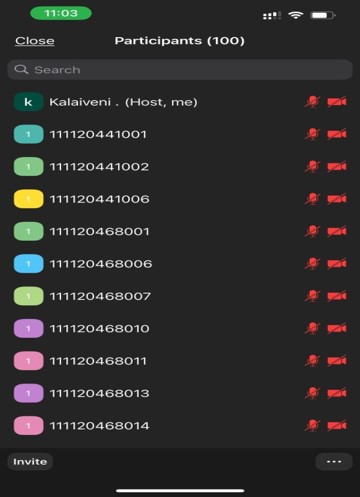





Engineer’s Day :
Commemoration & career opportunities
Students commemorated the great work of the great engineer Mokshagundam
Visvesvaraya.
Helped them to acquire knowledge, information, skills and experience
necessary to identify career options.
Venue: KGCW
Date: 15TH SEP 2022


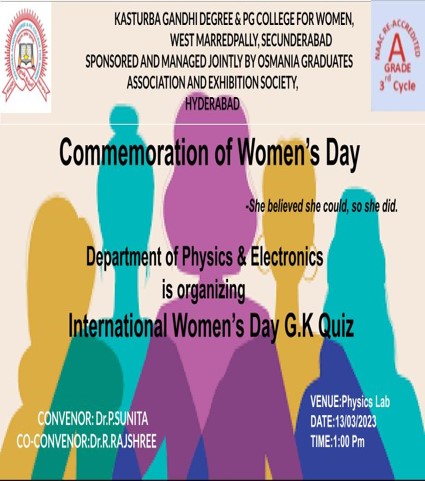
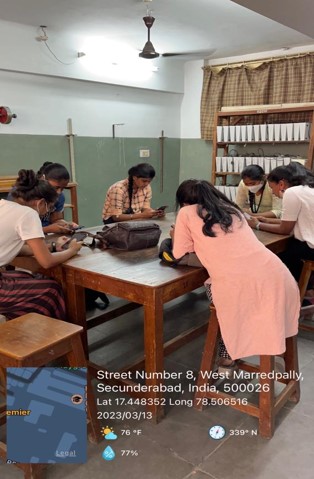
Visit to Bhavan’s College –Fourth State Plasma Exhibition on 14th August 2024.

Industrial Visit:
Importance of ECIL in Defense, Nuclear Sectors, E-Governance, X-Rays of
Stainless Steel and manufacturing of the FAIR (exportation to Germany)
Date: 8/9/22


Practical exposure to the models based on Laws of Physics Students observed the working models based on Laws of Physics
Date : 30/8/22
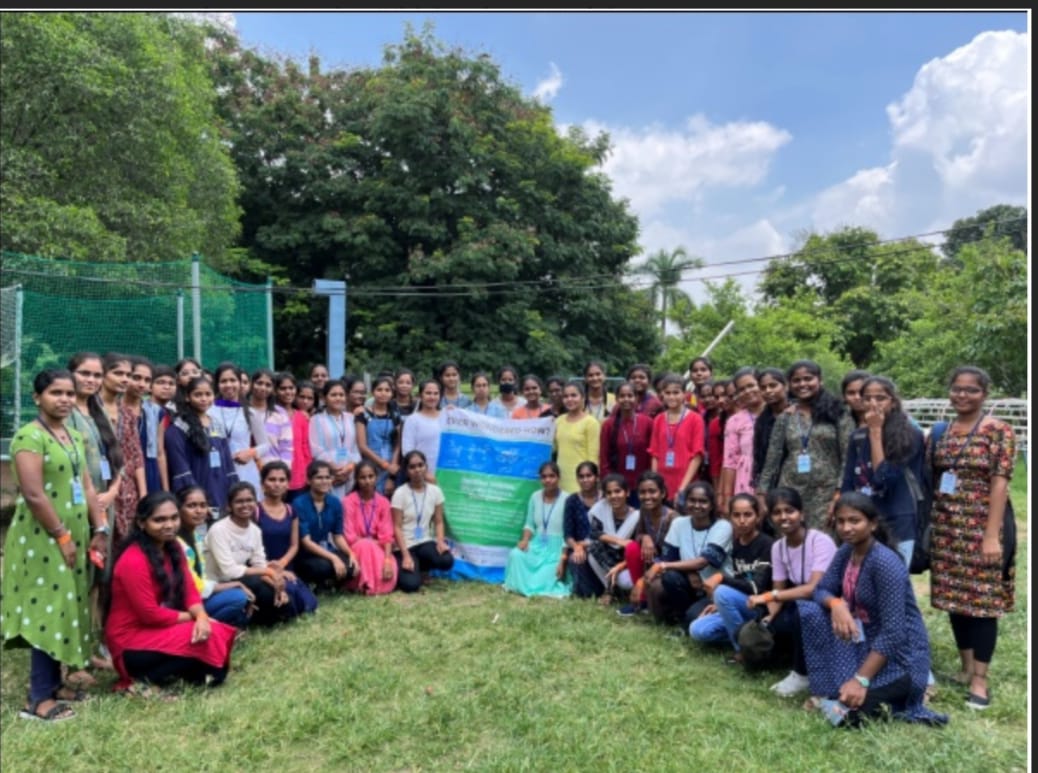

Title: Nuclear Fuel Complex
Knowledge on Nuclear Energy and manufacturing of the reactor core components
21/12/2021


Industrial Visit:
to NRSC-ISRO is scheduled on 15th February 2024,
from 10:00 AM to 2:00 PM, at the National Remote Sensing Centre, ISRO –
Jeedimetla.


Industrial Visit:
to Kwality Photonics, Kushaiguda, is scheduled on 31st January 2024, from
10:00 AM to 3:00 PM.


Industrial Visit:
to INCOIS Pragathi Nagar on 30th August 2024, from 9:00 AM to 3:00 PM, focusing on Understanding Ocean Data, Awareness of Marine Safety, and Practical Knowledge.


| TITLE | COLLEGE NAME | DATE | FACULTY ATTENDED |
|---|---|---|---|
| Connecting to connect - A physics faculty meet | Bhavan’s vivekananda college | 20/11/21 | N Madhavi Reddy |
| ICT and IoT based teaching | Kasturba Gandhi degree college | 18/09/2021 | M Kalaiveni |
| DATE | FACULTY | TITLE | VENUE |
|---|---|---|---|
| 23rd – 25th July 2020 | M KALAIVENI | Quality enhancement –IQAC | St.Ann’s College |
| DATE | FACULTY | TITLE | VENUE |
|---|---|---|---|
| 14 MAY 2020 | N MADHAVI REDDY | E-WORKSHOP ON “VIRTUAL LABS’’ | BHAVAN’S VIVEKANANDA COLLEGE |
| DATE | FACULTY | TITLE | VENUE |
|---|---|---|---|
| 18TH JUNE TO 23RD JUNE 2018 | N MADHAVI REDDY | Physics New Syllabus (CBCS) | AV COLLEGE |
| 29th Dec 2018 | M KALAIVENI | Evolution Technologies in Telecommunication | Aurora Degree College |
| TITLE | COLLEGE NAME | DATE | FACULTY ATTENDED |
|---|---|---|---|
| Synthesis characterization and applications of Nano materials | Harcourt Butler Technical university kanpur | 28/10/21 | N MADHAVI REDDY |
| Advances in smart nano materials | Government city College | 24th and 25th /03/2022 | N MADHAVI REDDY |
| Transport properties of Nano- crystalline thin films and its applications | Harcourt Butler technical university kanpur | 30/10/2021 | M Kalaiveni |
| Synthesis characterization and applications of Nano materials | Harcourt Butler Technical university kanpur | 30/10/2021 | N MADHAVI REDDY |
| Building the competencies of teachers for blended learning environment | Kasturba Gandhi degree college | 12/06/2021 | M Kalaiveni |
| DATE | FACULTY | TITLE | VENUE |
|---|---|---|---|
| 2 JUNE 2020 | N MADHAVI REDDY | SYNERGISTIC EFFORTS OF ACADEMICIANS AND INDUSTRIALISTS IN COMBATING COVID-19 USING LUMINESCENE | ST.PIOUS X DEGREE COLLEGE |
| 3 JUNE 2020 | N MADHAVI REDDY | EXPERIMENTAL BIOPHYSICS- ORGANIZATION OF MOLECULES IN BIOLOGICAL MEMBRANES | ST.FRANCIS COLLEGE |
| 28 Oct 2021 | M KALAIVENI | Synthesis characterization and application of nano | Harcourt butler university Kanpur |
| materials |
| DATE | FACULTY | TITLE | VENUE |
|---|---|---|---|
| 6 MAY 2020 | M KALAIVENI | EMERGING & REEMERGING INFECTIOUS DISEASES | LITTLE FLOWER DEGREE COLLEGE |
| 11 MAY 2020 | N MADHAVI REDDY | AYURVEDIC PREVENTIVE MEASURES BY DRUG AND PRANAYAM FOR COVID-19 | BHAVAN’S VIVEKANANDA COLLEGE |
| 16 MAY 2020 | N MADHAVI REDDY | IMPACT OF COVID-19 ON STOCK MARKETS | AURORA’S DEGREE & PG COLLEGE |
| 16 MAY 2020 | M.KALAIVENI | ICT AN EFFICIENT TOOL FOR EFFECTIVE TEACHING | BHAVAN’S VIVEKANANDA COLLEGE |